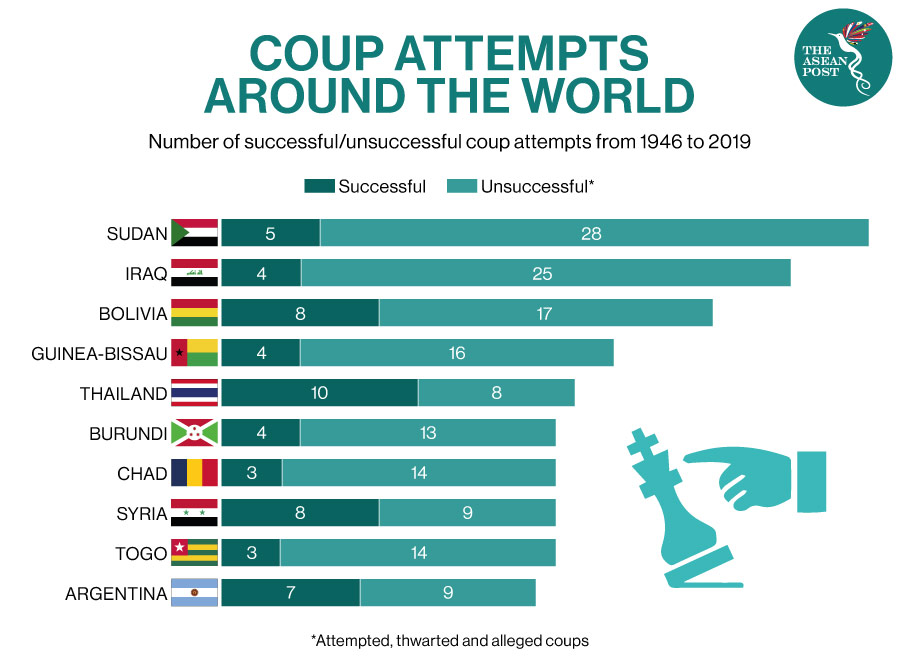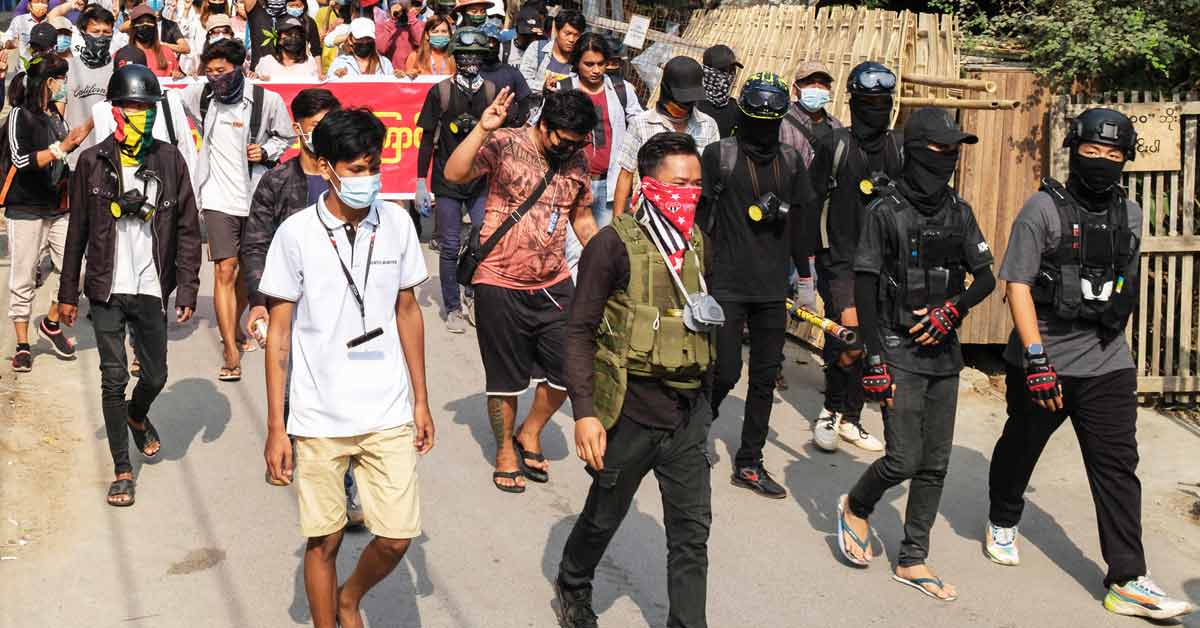"This is not a coup," said Major General Zaw Min Tun from a gilded hall in Myanmar's purpose-built capital Naypyidaw, the city where his comrades recently ousted an elected government, detained the country's leadership, and installed a military junta.
During an hour-long conversation with CNN, the military spokesperson was steadfast in upholding the junta's official narrative: that the generals are merely "safeguarding" the country while they investigate a "fraudulent" election. The bloodshed on the streets that has killed at least 600 people is the fault of "riotous" protesters, he said.
At one point, Zaw Min Tun said if civilian leader Aung San Suu Kyi's father – the assassinated independence hero Aung San, who founded the country's modern military – could see the situation now, he would say: "You are such a fool, my daughter."
The following interview with Zaw Min Tun offers an insight into how Myanmar's military junta are trying to justify their bloody takeover to the world.

The Back Story
Hours after the commander-in-chief of Myanmar's armed forces Min Aung Hlaing ordered his troops to seize the capital before dawn on 1 February, he announced on television that a state of emergency would be in place for one year, after which elections would be held. His takeover came as newly-elected lawmakers were due to take their places on the opening day of parliament.
Zaw Min Tun said the state of emergency could be extended for an additional "six months or more" over "two terms" and "if the duties are not done yet." He did not give a firm date for when elections would be held, but said that according to the 2008 military-drafted constitution, "we have to finish everything within two years. We have to hold a free and fair election within these two years."
"We promise that we will make it happen," he said.
Many observers have questioned whether the military, which ruled Myanmar for half a century between 1962 and 2011, would be willing to relinquish power again, whether elections would indeed be "free and fair" – and whether ousted leader Suu Kyi and her popular party the National League for Democracy (NLD) would be allowed to contest.
Zaw Min Tun pointed to a string of reforms the quasi-civilian government embarked upon in 2011 after the military gave up direct rule, which paved the way for the 2015 elections, in which Suu Kyi won a resounding victory.
"If we didn't want her from the beginning there would be no process like this," he said.
To justify the coup, the junta has alleged widespread election fraud in the November vote that would have given the NLD a second term and a mandate to continue its reform agenda, which included attempts to amend the constitution to limit the military's power.
Zaw Min Tun said the junta had "solid evidence" the elections were fraudulent, but did not show any to the media.
Bloodshed
It is evident from the interview that Myanmar's military leaders want the world to believe they are acting in line with the country's laws and constitution, and say they are committed to building a "multi-party democratic county."
But the bloodshed on the streets, in which soldiers and police have shot dead protesters, bystanders and children, belies that claim.
At least 600 civilians have been killed by security forces, according to advocacy group Assistance Association for Political Prisoners. Around 3,000 people have been detained, many kept out of contact from their families, their condition or whereabouts unknown.
Meanwhile, protesters, activists, journalists and families of those killed by the junta, have been forced into hiding as they fear security forces will hunt them in night-time raids.
Zaw Min Tun blamed the violence on protesters "provoking" the crowd and said security forces cracked down because protesters "blocked the civil servants" from going to work.
In reality, thousands of civil servants, as well as white- and blue-collar workers, including medics, bankers, lawyers, teachers, engineers and factory workers, left their jobs as a form of resistance against the coup. The strikes, called the Civil Disobedience Movement, have disrupted sectors of the economy.
"The crowds were throwing stones and slingshots at them in the beginning but later the crowd are blocking with sand bags, shooting with handmade guns, throwing with fire, throwing with molotov (cocktails) and the security forces have to use the weapons for the riot," Zaw Min Tun said.
"There will be deaths when they are cracking down (on) the riots, but we are not shooting around without discipline," he said.
According to the military, the death toll at the time of the interview was 248 people, including 10 police officers and six soldiers, he said – less than half the toll documented by multiple human rights groups.
The Killing Of Children
According to the UN Children's Fund, 46 children have been killed since the coup.
When asked about three teenagers who have died at the hands of security forces – Kyaw Min Latt, 17, Htoo Myat Win, 13, and Tun Tun Aung, 14, - the military spokesperson blamed protesters for "using" children on the front lines.
"In some places they provoke the children to participate in violent riots ... Because of that they may get hit when the security forces were cracking down (on) the crowds," he said. "There is no reason we will shoot children; this is only the terrorists trying to make us look bad."
Pressed by reporters about the allegations from families of soldiers shooting into houses and of the military attempting to cover up the causes of deaths, spokesperson Zaw Min Tun demanded evidence.
"If that kind of thing occurred, we will have investigation for it," he said. "There may be some videos which look suspicious but for our forces, we don't have any intention to shoot at innocent people." – CNN
Related Articles:
